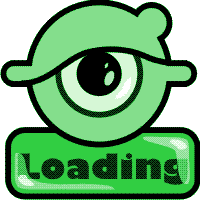Reyer
Montag, 6. Juni 2011
|
|
Topics:
- DEFINITION
- SYMPTOMS
- CAUSES
- PREVALENCE
- TREATMENT
- SPHYGOMOMANOMETER
- EXTRAS
Definition:
Hypertension, or high blood pressure, is a common condition that will catch up with most people who live into older age. Blood pressure is the force of blood pressing against the walls of your arteries. When it's too high, it raises the heart's workload and can cause serious damage to the arteries. Over time, uncontrolled high blood pressure increases the risk of heart dis-ease, stroke, kidney, lungs, blood vessels and brain disease.
Symptoms:
It is sometimes called a silent killer because it may have no outward symptoms for years. One in five people with the condition don't know they have it.
Causes:
The exact causes of hypertension are usually unknown, there are several factors that have been highly associated with the condition. These include:
- Smoking
- Obesity
- Diabetes
- Sedentary lifestyle (Lack of physical activity)
- High levels of salt intake (sodium sensitivity)
- Calcium, potassium, magnesium and Vitamin D deficiency
- High levels of alcohol consumption
- stress
- Aging
- Medicines such as birth control pills
- Genetics and a family history of hypertension
- Chronic kidney diseases
Prevalence:
Statistics in the USA indicate that African Americans have a higher incidence of hypertension than other ethnicities. In Italy, hypertension is a common medical disorder affecting more than 8 million people. In the Ravenna area, antihypertensive medicines are prescribed for an estimated 19% of the population.
Treatment:
- DASH Diet: Approaches to stop hypertension -- involves eating more fruits, vegetables, whole-grain foods, low-fat dairy, fish, poultry, and nuts
- Exercise: it helps lower your blood pressure
- Diuretics : they help the body shed excess sodium and water to lower blood pressure
- Beta-blockers: slowing the heart rate
- ACE Inhibitors: reduce your body's supply of angiotensin II; the result is more relaxed, open (dilated) arteries, as well as lower blood pressure and less effort for your heart
- ARBs: prevents the chemical's artery-tightening effects
- Calcium Channel Blockers: slow the movement of calcium into the cells of the heart and blood vessels
- Complementary Therapies: mediation, yoga
How is blood pressure measured?
Blood pressure is measured with an instrument called a blood pressure cuff (sphygmomanometer). The instrument measures the blood pressure in units called millimeters of mercury (mm Hg). The cuff is placed around the upper arm and narrowed down with the help of an air pump. The doctor is able to measure the pressure with a stethoscope over the artery at the front of the elbow.
What is normal blood pressure?
NORMAL: 75-110
WARNING: 85-130
DANGER: 90– 140
Did you know that?
- Studies haven't shown any link between caffeine and the development of hypertension. That means you can safely drink one or two cups a day.
- Hypertension during pregnancy is called preeclampsia and endangers mother and baby. The condition can limit blood and oxygen flow to the baby and can affect the mother's kidneys and brain.
- You can get “White Coat”- hypertension if you visit the doctor due to their fear.
- Too much liquorice causes hypertension
|
















Kategorie:
health and deseases